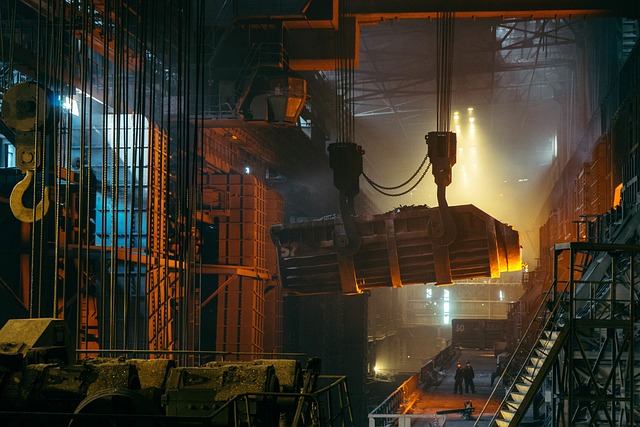Industrial facilities demand specialized roofing solutions for their unique needs, including withstanding heavy loads, extreme weather, and managing energy costs. Flat roofing is a common choice due to its ability to span large areas without support. Advanced materials like high-performance membranes, PVC, and TPO sheets ensure durability and water resistance. Efficient installation processes, safety protocols, and strategic partnerships are crucial for success in industrial roofing, as demonstrated by case studies showcasing cost savings and enhanced sustainability. The future of industrial roofing includes green roofs, solar panels, lightweight materials, and smart technologies for improved energy efficiency and reduced maintenance.
In the dynamic landscape of industrial operations, a robust and reliable roofing system is paramount. This article delves into the unique challenges and innovative solutions within the realm of industrial roofing for large-scale complexes. From understanding specific structural demands to implementing specialized materials and efficient installation methods, we explore strategies to ensure longevity and safety. We also present case studies showcasing successful transformations and look ahead to emerging trends shaping the future of industrial roofing practices.
- Understanding Industrial Roofing Challenges
- Specialized Materials for Durability
- Efficient Installation Processes
- Maintaining Safety on Large Sites
- Case Studies: Successful Industrial Roofs
- Future Trends in Industrial Roofing
Understanding Industrial Roofing Challenges
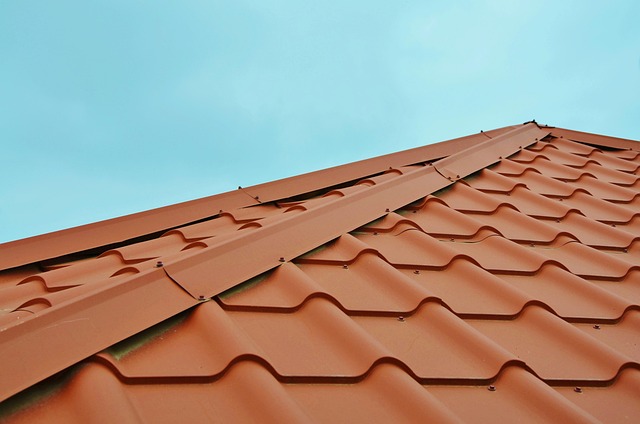
Industrial facilities face unique challenges when it comes to roofing due to their vast size and specialized nature. These complexes often house critical operations, demanding robust and durable solutions. Unlike residential or commercial roofs, industrial roofing must withstand extreme weather conditions, heavy loads from machinery, and potentially hazardous materials stored or processed on-site.
Additionally, warehouse roofing or factory roof systems require efficient insulation to manage energy costs and temperature regulation, especially in regions with drastic seasonal changes. Flat roofing, a common choice for industrial buildings, necessitates specialized installation techniques and materials that can accommodate large spans without support structures. These challenges highlight the importance of partnering with experts who understand the intricacies of industrial roofing, ensuring safety, efficiency, and longevity for these critical infrastructure components.
Specialized Materials for Durability
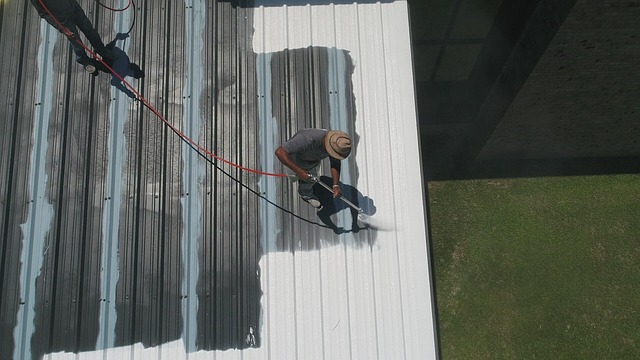
In the realm of industrial roofing, where structures are vast and demands are high, specialized materials play a pivotal role in ensuring longevity and durability. Unlike traditional residential roofs, industrial complexes, such as factories and warehouses, face unique challenges like heavy loads, extreme weather conditions, and constant exposure to harsh elements. Therefore, robust and resilient materials become non-negotiable for reliable protection.
Flat roofing systems, a common choice for industrial facilities, benefit from advanced material technologies. These include high-performance membranes capable of withstanding intense UV radiation, extreme temperatures, and even heavy machinery traffic. Additionally, modern solutions offer superior water resistance, reducing the risk of leaks that could disrupt operations. For instance, factory roof systems often employ reinforced PVC or TPO (Thermoplastic Olifine Polymer) sheets, known for their exceptional strength-to-weight ratio and resistance to chemical corrosion, making them ideal for warehouse roofing applications as well.
Efficient Installation Processes
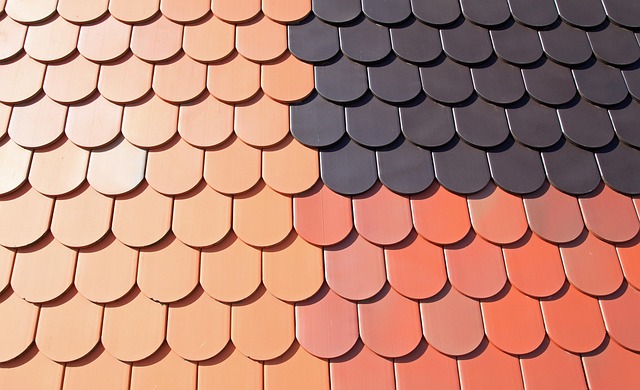
Industrial complexes and manufacturing facilities require robust and durable roofing solutions to withstand the demands of their operations. Efficient installation processes are a key differentiator when it comes to choosing a roofing service provider for such large-scale projects. The expertise lies in streamlining the installation process, ensuring minimal disruption to the facility’s productivity while delivering high-quality, long-lasting results.
Specialized equipment and techniques are employed for industrial roofing, including advanced machinery for faster and more precise installations. For warehouse roofing or factory roof systems, this translates to reduced downtime, minimizing the impact on daily operations. The use of modern materials, such as robust flat roofing membranes, allows for quick installation while offering superior strength and protection against harsh weather conditions. This efficient approach not only saves time but also contributes to cost-effectiveness, making it a practical choice for businesses seeking reliable and swift industrial roofing solutions.
Maintaining Safety on Large Sites
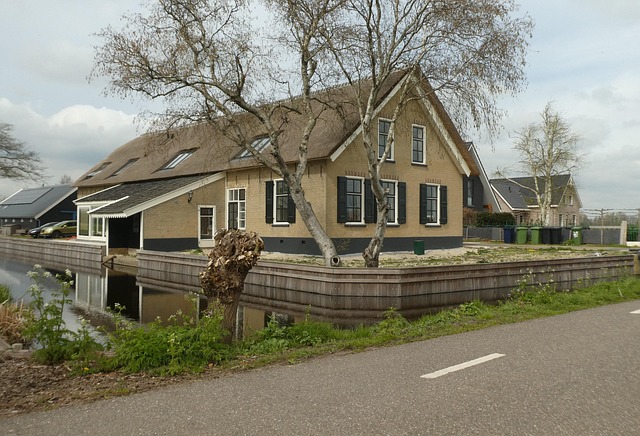
Maintaining safety on large industrial sites is a top priority for any roofing service provider. With vast spaces and complex structures, ensuring worker and equipment security is an intricate task. Industrial roofing professionals employ stringent safety protocols tailored to these environments, such as implementing robust fall protection measures, including guardrails and safety nets, especially when working at elevated heights. Regular site inspections are conducted to identify potential hazards, ensuring that all safety standards are met or exceeded.
Factory roof systems often face unique challenges due to their size and exposure to various weather conditions. Warehouse roofing, for instance, requires materials and designs that can withstand heavy loads and intense solar radiation. By utilizing advanced safety equipment and staying up-to-date with industry regulations, industrial roofing specialists guarantee secure and durable solutions, ensuring the long-term integrity of these critical structures.
Case Studies: Successful Industrial Roofs
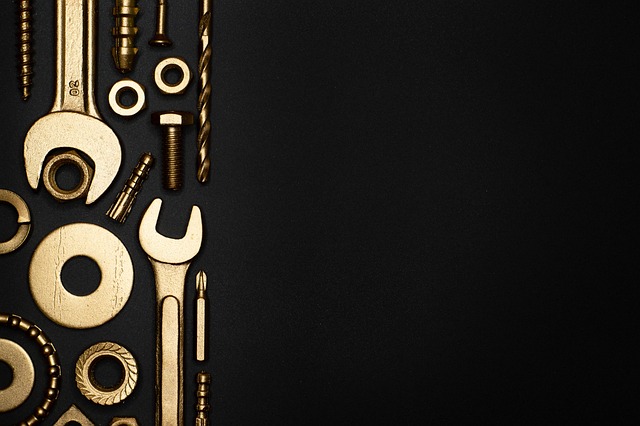
In the realm of industrial roofing, success stories abound for those who understand the unique challenges and requirements of large-scale facilities. Case studies across various sectors highlight the transformative impact of well-designed and installed industrial roof systems. For instance, a leading manufacturing plant faced a significant challenge with its aging warehouse roofing, prone to leaks and costly maintenance. Through a strategic partnership with roofing experts, they implemented a robust industrial flat roofing solution, achieving long-term durability and significantly reducing repair expenses.
Another compelling example involves a state-of-the-art factory roof system, where engineers sought a sustainable and efficient solution for their expansive site. The result was an innovative design combining high-performance materials to create both a protective barrier against harsh weather conditions and a green roof that contributed to the facility’s environmental sustainability goals. These successful industrial roofing projects demonstrate the value of tailored solutions, advanced technologies, and expert craftsmanship in ensuring the integrity and longevity of these critical structures.
Future Trends in Industrial Roofing
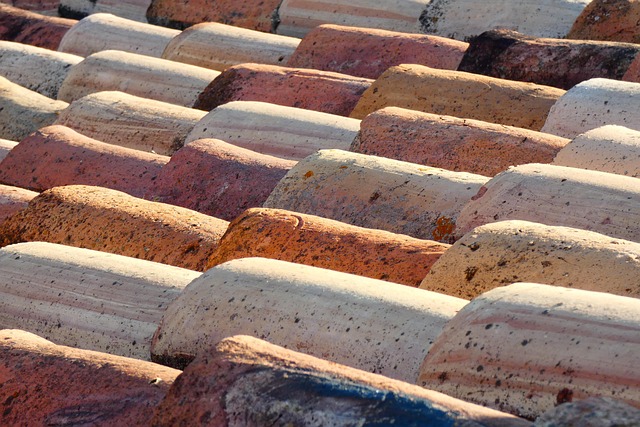
The future of industrial roofing is set to be transformed by innovative technologies and sustainable practices. As the demand for eco-friendly solutions grows, we’re likely to see a surge in the adoption of green roofs and solar panels integrated into factory roof systems. These not only reduce environmental impact but also serve as effective insulation, enhancing energy efficiency in large industrial complexes.
Advancements in materials science are also expected to play a significant role. Lightweight, durable, and flexible materials will enable faster installation and reduced maintenance for warehouse roofing and industrial flat roofing alike. Additionally, smart roof technologies that monitor weather conditions, detect leaks early, and optimize energy usage are becoming more prevalent. These trends promise to make industrial roofing not just functional but also integral to the overall sustainability and operational efficiency of manufacturing facilities.
